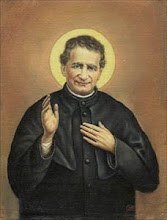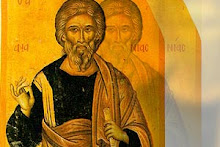
One of the greatest mysteries that exist within the very being of our soul is whether or not, to listen to someone. We as fallible human beings tend to stray in our own path. This phenomenon has been occurring since our first parents felt the need to ignore a Divine decree from God not to eat the fruit from the tree in the midst of the Garden see: (Gen 3:1-8). Thus, from the beginning man has insisted on ignoring the directives of his own creator. We see this practice continue with Cain in (Gen 4) and the wickedness of men in (Gen 6:1-9).
God asks man, because he is created in the image and likeness of God, to obey with a sincere heart and faithfully follow the path being laid before him. Intermittently between these historic events, Noah reveals to us as the first faithful servant who obeys God and forges a covenant with Him. This covenant in many ways reflects an oath of fidelity to the will of the Father. How, he builds an arc as directed by God to continue the lineage of his children, a path of salvation forever linked to the foreshadowing of the “new Adam” the Messiah Jesus Christ.
We see because of Noah’s faithfulness in constructing the arc, after the waters recede in (Gen 8:1-12) God makes a promise (Oath) to Noah that He will “. . . never curse the ground because of man . . .” (Gen 8:21). God blesses Noah for his faithfulness. We can continue with countless encounters throughout Salvation History as revealed to us by our Lord through His Sacred Word e.g. Abraham, Isaac, Jacob etc. but it leads us to a point very prevalent today. Should anyone who teaches in a Catholic school or religious education program be required to make a covenant i.e. sign an oath of fidelity that he/she will demonstrate fidelity to the teachings of the Church?
Is the mere mention of being a Catholic teacher sufficient affirmation to allow the instruction of the faithful? Is there a greater need for clarity to assure fidelity to the Church with one who is Catholic? Unfortunately in today’s current catechetical state, saying your Catholic is not a sufficient means to assure fidelity to the Church’s Magisterium(teaching office) anymore. Too often, we find and here Catholic educators within our Catholic institutions of learning promoting such things contradictory to the faith like abortion, contraception, in-vitro fertilization, cohabitation and I can go on. In the last forty-years, there has been a loss of the sense of obedience. The sense of freedom has been reduced to the “right” to so as I please and perform as I see fit.
The Catechism reminds us: “by faith man completely submits his intellect and his will to God. With his whole being man gives his assent to God, the author of revelation, ‘the obedience of faith’”. (CCC 143) Our responsibility rests on listening to the will of the Father and not our own. Assent to his love will lead us to love others and avoid the love of self. Obey, ob-audire meaning to hear or listen calls us to submit freely to the word that has been heard because it is God himself. (CCC 144) The letter to the Hebrews assists us to recall the importance of faith and obedience: “Now faith is the assurance of things hoped for the conviction of things not seen.” (11:1) Hope rests in the very act of obedience because it is in hope where we as finite creatures surrender ourselves to the will of the Father because we know by our own volition only so much is accomplished. Our free assent, our oath to Christ and his Church cuts to the heart of our catechetical mission to instruct the hearts of the faithful in His love.
Ultimately, it is not the Gospel according to our own disposition. This is contrary to the very fiber of the Deposit of Faith. It is freedom to carry on the love of Christ and His Church for the whole world. Our love must be directed to the love that never ends. (CCC 25)
God asks man, because he is created in the image and likeness of God, to obey with a sincere heart and faithfully follow the path being laid before him. Intermittently between these historic events, Noah reveals to us as the first faithful servant who obeys God and forges a covenant with Him. This covenant in many ways reflects an oath of fidelity to the will of the Father. How, he builds an arc as directed by God to continue the lineage of his children, a path of salvation forever linked to the foreshadowing of the “new Adam” the Messiah Jesus Christ.
We see because of Noah’s faithfulness in constructing the arc, after the waters recede in (Gen 8:1-12) God makes a promise (Oath) to Noah that He will “. . . never curse the ground because of man . . .” (Gen 8:21). God blesses Noah for his faithfulness. We can continue with countless encounters throughout Salvation History as revealed to us by our Lord through His Sacred Word e.g. Abraham, Isaac, Jacob etc. but it leads us to a point very prevalent today. Should anyone who teaches in a Catholic school or religious education program be required to make a covenant i.e. sign an oath of fidelity that he/she will demonstrate fidelity to the teachings of the Church?
Is the mere mention of being a Catholic teacher sufficient affirmation to allow the instruction of the faithful? Is there a greater need for clarity to assure fidelity to the Church with one who is Catholic? Unfortunately in today’s current catechetical state, saying your Catholic is not a sufficient means to assure fidelity to the Church’s Magisterium(teaching office) anymore. Too often, we find and here Catholic educators within our Catholic institutions of learning promoting such things contradictory to the faith like abortion, contraception, in-vitro fertilization, cohabitation and I can go on. In the last forty-years, there has been a loss of the sense of obedience. The sense of freedom has been reduced to the “right” to so as I please and perform as I see fit.
The Catechism reminds us: “by faith man completely submits his intellect and his will to God. With his whole being man gives his assent to God, the author of revelation, ‘the obedience of faith’”. (CCC 143) Our responsibility rests on listening to the will of the Father and not our own. Assent to his love will lead us to love others and avoid the love of self. Obey, ob-audire meaning to hear or listen calls us to submit freely to the word that has been heard because it is God himself. (CCC 144) The letter to the Hebrews assists us to recall the importance of faith and obedience: “Now faith is the assurance of things hoped for the conviction of things not seen.” (11:1) Hope rests in the very act of obedience because it is in hope where we as finite creatures surrender ourselves to the will of the Father because we know by our own volition only so much is accomplished. Our free assent, our oath to Christ and his Church cuts to the heart of our catechetical mission to instruct the hearts of the faithful in His love.
Ultimately, it is not the Gospel according to our own disposition. This is contrary to the very fiber of the Deposit of Faith. It is freedom to carry on the love of Christ and His Church for the whole world. Our love must be directed to the love that never ends. (CCC 25)



